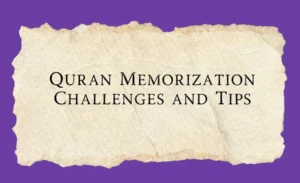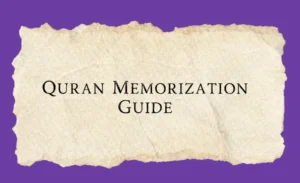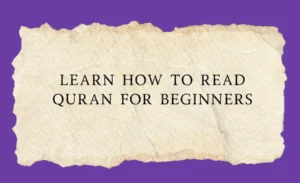The Ayat-e-Kareema is one of the most powerful and widely recited verses of the Holy Qur’an. It is found in Surah Al-Anbiya (21:87) and is famously known as the Dua of Prophet Yunus (عليه السلام) when he was trapped in the belly of the whale. This blessed verse is a reminder of Tawheed (Oneness of Allah), repentance, and submission to Allah’s mercy.
Muslims around the world recite this verse as a dua for forgiveness, relief from distress, and acceptance of prayers. Scholars and hadith narrations emphasize its immense spiritual and practical benefits for every believer.
Keep reading the blog to know more in detail.
The Ayat e Kareema (Arabic, Transliteration, and Translation)
Arabic: لَا إِلَٰهَ إِلَّا أَنتَ سُبْحَانَكَ إِنِّي كُنتُ مِنَ الظَّالِمِينَ
Transliteration:
Lā ilāha illā anta subḥānaka innī kuntu minaẓ-ẓālimīn.
Translation:
“There is no deity except You; Glory be to You. Indeed, I have been of the wrongdoers.” (Surah Al-Anbiya 21:87)
The Ayat e Kareema is the heartfelt supplication of Prophet Yunus (عليه السلام) when he was in the belly of the whale. It is a powerful verse combining Tawheed, Tasbeeh, and Istighfar, making it one of the most effective duas for forgiveness, relief, and acceptance.
Historical Context of Ayat e Kareema
Prophet Yunus (عليه السلام), also known as Dhun-Nun (the man of the fish), was sent as a messenger to the people of Nineveh. When his people rejected his message after years of da‘wah, he left them in anger before receiving Allah’s command to do so. This action led to a great trial for him, as he was cast into the sea and swallowed by a massive whale by Allah’s will.
Inside the darkness of the whale’s belly, compounded by the darkness of the deep sea and the darkness of the night, Prophet Yunus (عليه السلام) realized his mistake and turned to Allah in humility. He called out with the famous supplication:
لَا إِلَٰهَ إِلَّا أَنتَ سُبْحَانَكَ إِنِّي كُنتُ مِنَ الظَّالِمِينَ
(Lā ilāha illā anta subḥānaka innī kuntu minaẓ-ẓālimīn).
This heartfelt dua acknowledged Allah’s Oneness (Tawheed), His Perfection (Tasbeeh), and Yunus’s own shortcomings (Istighfar). Allah, in His infinite mercy, responded to the repentance, forgave him, and delivered him safely back to land.
Not only was Prophet Yunus (عليه السلام) saved, but his people also later accepted faith, making them one of the rare nations mentioned in the Qur’an to collectively repent and be spared from Allah’s punishment. The story of Ayat e Kareema thus stands as a timeless lesson in patience, repentance, and never losing hope in Allah’s mercy.
Hadith on the Virtues of Ayat e Kareema
Prophet Muhammad ﷺ said:
Arabic: دَعْوَةُ ذِي النُّونِ إِذْ دَعَا وَهُوَ فِي بَطْنِ الْحُوتِ: لَا إِلَهَ إِلَّا أَنْتَ سُبْحَانَكَ إِنِّي كُنْتُ مِنَ الظَّالِمِينَ، فَإِنَّهُ لَمْ يَدْعُ بِهَا رَجُلٌ مُسْلِمٌ فِي شَيْءٍ قَطُّ إِلَّا اسْتَجَابَ اللَّهُ لَهُ.
Transliteration:
Da‘watu dhī-n-nūni idh da‘ā wa huwa fī baṭni-l-ḥūt: Lā ilāha illā anta subḥānaka innī kuntu minaẓ-ẓālimīn, fa-innahu lam yad‘u bihā rajulun muslimun fī shay’in qaṭṭu illā istajāba-llāhu lahu.
Translation:
“The supplication of Dhun-Nun (Prophet Yunus) when he supplicated while in the belly of the whale: ‘There is no deity except You; Glory be to You, indeed I was of the wrongdoers.’ No Muslim ever supplicates with it for anything except that Allah responds to him.” (Sunan al-Tirmidhi 3505, Sahih)
This Hadith highlights the immense power of Ayat e Kareema as a universal dua for all believers. The Prophet ﷺ assured that whoever recites this supplication with sincerity, Allah will respond to their prayers. It serves as a reminder that no matter the hardship, turning to Allah with humility and repentance brings divine mercy and acceptance.
Tafseer Insights of Ayat e Kareema
Scholars explain that this verse combines three powerful elements of dua:
- Tawheed (Oneness of Allah): “Lā ilāha illā anta” – affirming there is no god but Allah.
- Tasbeeh (Glorification): “Subḥānaka” – declaring Allah’s perfection, free from all flaws.
- Istighfar (Repentance): “Innī kuntu minaẓ-ẓālimīn” – admitting one’s mistakes and shortcomings.
This balance of faith, praise, and humility makes the Ayat e Kareema one of the most effective prayers for acceptance.
Benefits of Reciting Ayat e Kareema
Below are some significant advantages of reciting ayat-e-kareema:
- Relief from Distress and Hardship: Reciting it brings peace during trials.
- Forgiveness of Sins: It is a form of repentance directly taught by the Prophet ﷺ.
- Acceptance of Dua: Guaranteed acceptance as mentioned in Hadith.
- Spiritual Protection: Shields the heart from despair and hopelessness.
- Strengthening of Iman (Faith): Reminds believers of Allah’s mercy and power.
How and When to Recite Ayat e Kareema
Ayat e Kareema can be recited at any time, especially during hardship, illness, or when seeking forgiveness and Allah’s mercy. It is highly recommended in moments of distress, during salah, and in daily zikr, as it opens the doors of relief, acceptance, and divine blessings. Here is a brief compilation on how and when to recite it:
- In times of hardship, illness, or calamity.
- During Salah (prostration or after tashahhud) as a personal dua.
- In daily zikr to seek forgiveness and Allah’s closeness.
- Especially in the last third of the night (Tahajjud) when duas are most accepted.
Conclusion
The Ayat e Kareema (La ilaha illa anta subhanaka inni kuntu minaz-zalimeen) is more than just a verse, it is a lifeline for every believer. Its recitation brings forgiveness, mercy, and relief from distress, as promised by Allah and His Messenger ﷺ. By making this dua a part of our daily lives, we strengthen our bond with Allah, find hope in trials, and ensure that our prayers are never left unanswered.
FAQs on Ayat e Kareema
Q1: Is Ayat e Kareema only for forgiveness?
No, it is a comprehensive dua for forgiveness, relief, guidance, and acceptance of prayers.
Q2: Can women recite Ayat e Kareema during menses?
Yes, it is a dua and zikr, not part of Qur’an tilawah, so women can recite it anytime.
Q3: How many times should Ayat e Kareema be recited?
There is no fixed number, but scholars recommend frequent recitation, especially during difficulties.






